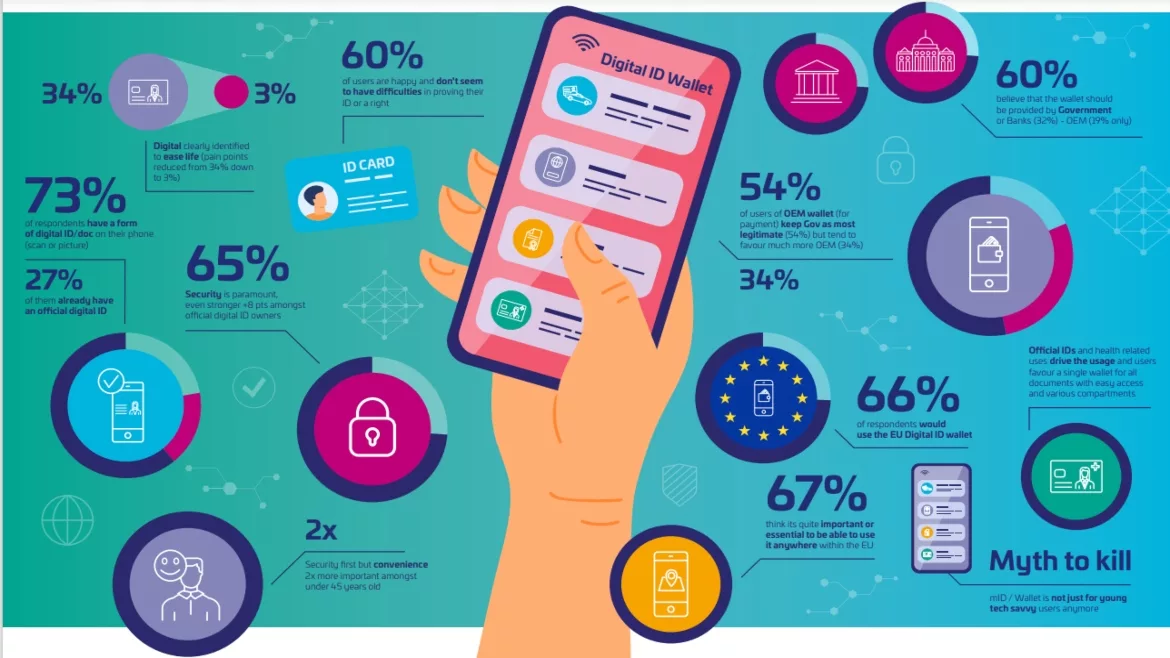2 out of 3 European citizens welcome digital ID wallet

Image courtesy of Thales
Two out of three European citizens are looking forward to the arrival of an EU-backed Digital ID Wallet for storing their ID card, driving license and other official documents and signed attestations on a smartphone, according to a new Thales survey.
The results also reveal that while 27% currently use some form of official national Digital ID scheme, 45% rely on insecure, unofficial, ‘DIY’ (do it yourself) scans and photos of their cards and documents to help prove their identity and entitlements.
The survey found three key trends:
1. Digitalization is already improving user experience and relieving identification headaches
Starting with a pilot phase in 2023, every member state must offer citizens a Digital ID Wallet that can be used throughout the EU by 2024. The survey results underline the need for this pioneering European initiative to offer the most convenient user experience (UX) at the highest level of security. Regarding UX, 34% of people surveyed find it difficult to prove their identity when renewing an ID document, 30% have problems making a high value purchase, and 29% encounter troubles when applying for financial services. However, among the 40% who face such issues, the figure falls to just 5% or below when a digital format is used.
2. Successful wallets will need to match highest security standards
In all but one of the countries surveyed, the government emerged as the preferred provider of the European Digital ID Wallet. However, despite widespread public support for the idea, the results demonstrate that wallet providers must address significant security and data privacy concerns among potential users. In particular, the research shows that 65% of Europeans rate security as the most important feature in any new wallet, followed by convenience and privacy.
3. Different national attitudes to the European Digital ID Wallet
The survey uncovers differences in national attitudes. The French and the Italians are the most positive about the European Digital ID Wallet, with 85% and 75%, respectively, claiming they will use it. Enthusiasm for the European Digital ID Wallet is also influenced by age and citizens’ experiences of digital wallets providers (such as Apple, Google, and Samsung) and national Digital ID schemes, including BankID in Sweden.
The full results are now available in a new white paper: Understanding the European identity experience.
Looking for a reprint of this article?
From high-res PDFs to custom plaques, order your copy today!






